Imagine you’re walking through a garden, looking at a variety of plants, and you spot some with signs of distress. You wouldn’t just water all of them more, right? You’d take the time to understand what each plant needs.
Now, apply that same thought to acne and skin care. To tackle acne effectively, it’s paramount to understand what it is and what it needs instead of applying generic or ill-informed solutions.
So, I’m going to tell you about acne.
What Actually Is Acne?
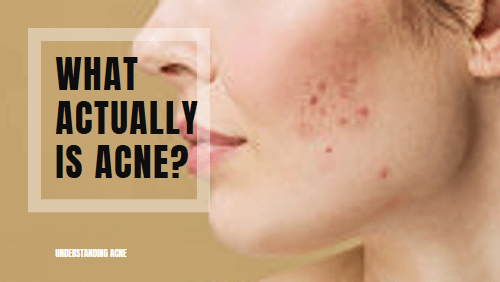
Acne isn’t just a few pimples here and there; it’s a complex skin condition involving your hair follicles and oil glands. When these get blocked and inflamed, voila, you’ve got acne.
A variety of factors can throw this delicate balance off kilter, from hormonal changes to stress and even your diet.
How Acne Affects Your Mental Health and Self-Esteem
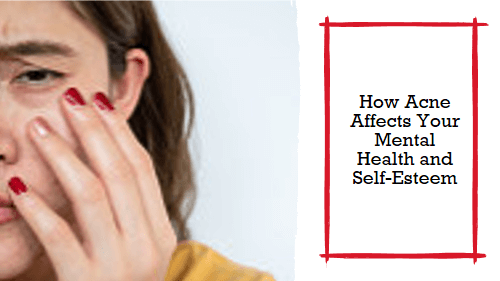
This isn’t just about superficial blemishes. The impact of acne on someone’s psychological health and self-esteem can be immense.
It’s not uncommon for acne to lead to social withdrawal or feelings of insecurity.
That’s why an informed and consistent skincare routine matters. It’s also why I’m here to help you skip the trial and error and go straight to what works.
The Dangers of Misinformation and Quick Fixes for Acne
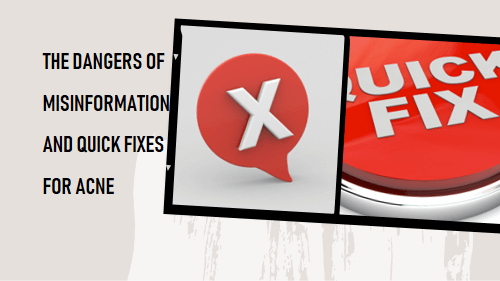
I want to caution you about the pitfalls of misinformation and quick fixes that promise overnight miracles for acne.
Effective acne treatment is more often a marathon than a sprint. It takes patience and personalized care to see substantial results.
Choose something that resonates with you, based on reliable information, rather than flashy marketing promises.
Now you’re starting to see the bigger picture of acne, right? And why understanding it is crucial before diving head-on into various skincare practices.
Speaking of practices, my next piece of advice involves avoiding a common mistake: over-cleansing your skin. Stick around, because that’s going to include some crucial insights on how to treat your skin with the care it really needs.
The Over-Cleansing Conundrum: Stripping Away More Than Just Dirt
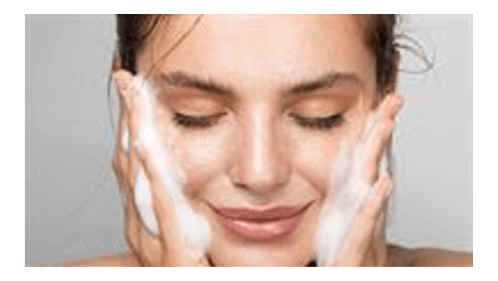
I’m going to lay it out for you: over-cleansing can backfire big time. You might think that scrubbing your face frequently is the way to beat acne, but your skin begs to differ.
Let’s break down the mechanics of this mistake.
Think of your skin as a self-sustaining ecosystem. It relies on a delicate balance of oils and good bacteria to keep everything in check.
When you over-wash, you’re not just cleaning away the day’s grime; you’re messing with that balance, potentially leading to more breakouts.
How to Choose the Right Cleanser for Your Skin
You’re probably wondering how to preserve your skin’s natural oils while still keeping acne at bay. It’s simpler than you think.
For starters, identifying harsh ingredients in your cleanser is key. Alcohol-based astringents, sulfates, and certain fragrances can be harsh on your skin, stripping away the natural oils that actually help protect against acne.
I suggest opting for gentle, non-comedogenic cleansers that clean without over-drying.
How Often to Wash Your Face for Optimal Results
So, how often should you wash your face?
Twice a day is typically the standard – morning and night face washing.
For the gym enthusiasts, a rinse after sweating it out can help, but there’s no need for heavy-duty cleansers each time. Sometimes, plain lukewarm water will do the trick for extra rinses.
Now, for those with particularly reactive skin or severe acne, your dermatologist might adjust this rule. They’re your best resource for personalized advice.
How to Maintain a Balanced Cleansing Routine
In my opinion, a balanced cleansing routine is fundamental.
Just don’t focus too much on perfection; if you skip a wash, don’t panic. It’s about a consistent, long-term approach that takes your unique skin type into account.
Now, with your cleansing routine on point, we’re not stopping there. Next up, let’s talk about exfoliation – another essential piece of the acne-fighting puzzle that needs a balanced hand.
Exfoliation Excesses: The Fine Line Between Helping and Harming
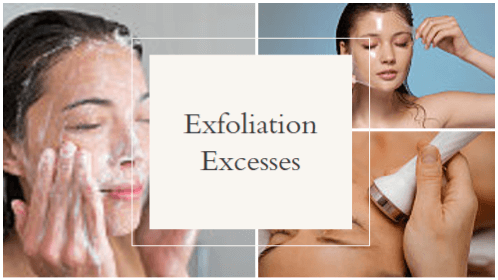
Exfoliation is a critical step in many skincare routines, especially for those battling acne.
It’s designed to slough off dead skin cells, promote cell turnover, and give your skin a fresher appearance.
But here’s where it gets tricky: there’s a fine line between exfoliation that benefits the skin and exfoliation that agitates it, potentially worsening your acne.
Chemical vs. Physical Exfoliants: Which One to Choose?
Now, you’re going to find out about the two main types of exfoliants: chemical and physical exfoliants.
Chemical exfoliants, which include acids like glycolic and salicylic acid, work by dissolving dead skin cells.
Physical exfoliants, on the other hand, use small grains or brushes to manually remove these cells.
While chemical and physical exfoliants can be effective, choosing the right type for your acne-prone skin is crucial to avoid further irritation.
How to Tell If You’re Over-Exfoliating Your Skin
If you’re wondering how to tell if you’re over-exfoliating, pay attention to your skin.
The following signs can indicate that you need to dial it back:
- increased sensitivity,
- redness,
- and even breakouts
Over-exfoliation can strip your skin of its natural oils, leading to an overproduction of sebum and, ironically, more acne.
How to Exfoliate Your Skin the Right Way
So how do you get it right? Start with a gentle exfoliant, use it sparingly, and watch your skin’s reaction.
If you notice any of the warning signs I’ve mentioned, take a step back.
Remember, exfoliation should leave your skin feeling smooth and refreshed, not raw and inflamed.
Avoid Skincare Trend-hopping and Stick to What Works
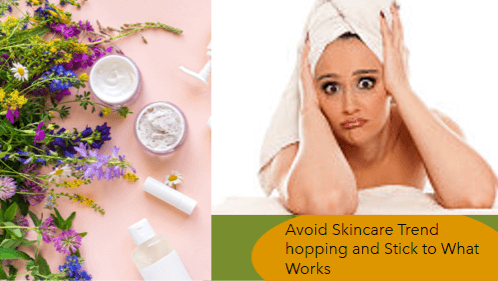
This speaks to a larger trend in skincare: the temptation to jump on every new product or routine touted as an acne cure-all.
In the next section, we’ll discuss the slippery slope of skincare trend hopping and how staying informed and selective can make all the difference in your journey to clear skin.
Conclusion: Navigating Skincare to Combat Acne Effectively
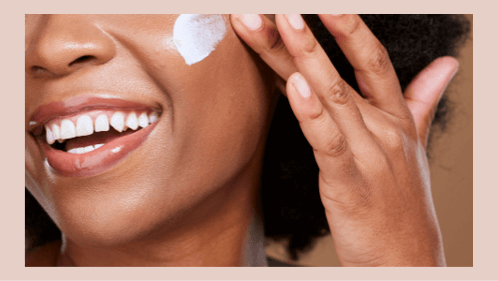
Navigating the maze of skincare advice and products can indeed be overwhelming, especially when you’re trying to clear up acne.
The key takeaway is to:
1) Be Intentional and Informed
Slow down and be intentional about your skincare choices. Don’t skip on doing your homework; researching ingredients and understanding your skin’s unique needs are essential steps.
2) Treat Acne as a Long-Term Goal
Remember, treating acne is rarely a sprint; it’s more of a marathon. Rushing into harsh treatments or the latest fad can often do more harm than good. Sticking to evidence-based products and customizing your skincare routine can help you manage acne more successfully over time. It’s not just about immediate results, but also maintaining the health of your skin long-term.
3) Seek Professional Guidance
Of course, every skin is unique, and what works for one person might not work for another. That’s why it’s so crucial to consult a dermatologist or skincare professional. They can help determine the underlying causes of your acne and recommend a treatment plan tailored to your skin’s needs.
4) Apply These Insights and Win the Battle
Finally, I really hope that you take these insights and apply them to your skincare journey. Acne can be a challenging adversary, but with the right approach and trusted advice, you can emerge victorious. Remember, in the battle against acne, patience, knowledge, and a little professional help are your best allies.
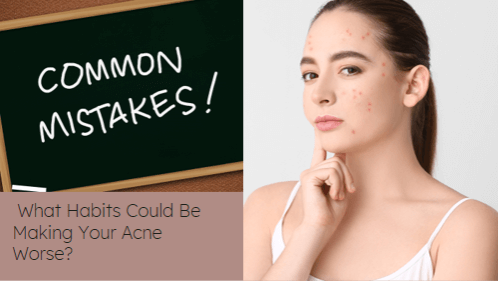
One of my nieces struggles with acne, and she washes her face several times a day. I think I’m going to send this article to her so she can see that overfishing can actually harm her skin even more. I’m hoping we can find her a product that works that she can see results with. But when something doesn’t work, she over does the washing and cleaners. It’s like she’s trying to scrub away the acne but what she’s doing is removing the natural oils that are there to protect her skin.
Hi DashDNations,
Thank you for your comment and for sharing your niece’s story. I’m sorry to hear that she’s struggling with acne and overwashing her face. I can understand how frustrating it can be to try different products and not see any improvement.
You’re absolutely right that overwashing can actually harm her skin even more. It can strip away the natural oils and moisture that her skin needs to stay healthy and balanced. It can also irritate her skin and cause inflammation, which can worsen acne.
I’m glad that you’re planning to send this article to her. I hope she finds it helpful and informative. I also hope that she can consult a dermatologist or skincare professional who can help her find a product that works for her skin type and condition. There are many effective treatments for acne, but they need to be used correctly and consistently.
Please let me know if you have any questions or feedback about the article. I appreciate your interest and support. I wish you and your niece all the best in your skincare journey.
Remember, patience, knowledge, and a little professional help are your best allies in the battle against acne.
Cheers!
Martins